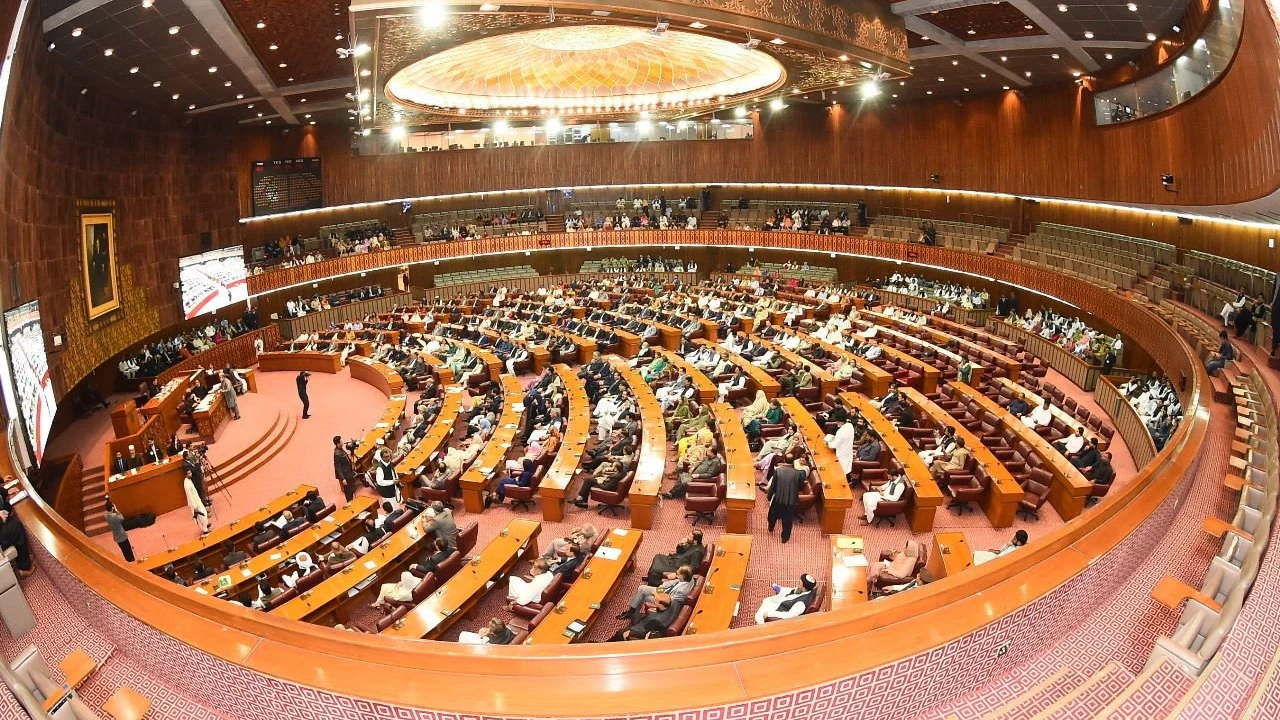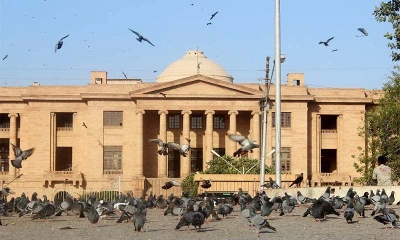Pakistan
What is Politicians’ response to SC eight-member bench due to hear pleas against bill curtailing CJP’s powers?
Under the new legislation, a three-member bench comprising the Chief Justice of Pakistan (CJP) and the two most senior judges of the Supreme Court will decide whether or not to take up a matter suo motu.

Islamabad: Attaullah Tarar, a leader of Pakistan Muslim League-Nawaz (PML-N) and Special Assistant to the Prime Minister on Interior, on Wednesday expressed his disagreement with the Supreme Court's decision to appoint a "like-minded" bench for the hearing of a bill.
Tarar criticized the decision, stating that it was an insult to the Parliament to fix a law that has not yet been enforced for a hearing before a like-minded bench at a fast pace.
ایک قانون جو ابھی نافذ العمل ہوا ہی نہیں اور نہ ہی رائج ہوا ہے اس کو بجلی کی تیزی سے سماعت کے لئے ہم خیال بینچ کے سامنے مقرر کرنا پارلیمان کی توہین ہے۔ pic.twitter.com/gKw8wpHBiI
— Attaullah Tarar (@TararAttaullah) April 12, 2023
In response to Tarar's comments, Fawad Chaudhry, a leader of Pakistan Tehreek-e-Insaf (PTI), tweeted that those who believed that a larger bench would solve problems would be pleased with the current arrangement.
اب جب چیف جسٹس پاکستان نے سپریم کورٹ کے اکثریتی جج صاحبان پر بنچ تشکیل دے دیا ہے تو امید ہے ان لوگوں کی تسلی ہو گئ ہو گی جو سمجھتے تھے کہ بڑا بنچ ہی مسائل کا حل ہے #آئین_بچاؤ_ملک_بچاؤ pic.twitter.com/X6Y8UVt2yz
— Ch Fawad Hussain (@fawadchaudhry) April 12, 2023
Under the new legislation, a three-member bench comprising the Chief Justice of Pakistan (CJP) and the two most senior judges of the Supreme Court will decide whether or not to take up a matter suo motu. Previously, this was the sole prerogative of the CJP. The law also provides that every cause, matter, or appeal before the apex court will be heard and disposed of by a bench constituted by a committee comprising the CJP and the two most senior judges.
The bill also grants the right to file an appeal within 30 days of the judgment in a suo motu case and ensures that any case involving constitutional interpretation will not have a bench of fewer than five judges.
Furthermore, the bill allows former Prime Minister Nawaz Sharif and other parliamentarians who were disqualified by the Supreme Court under suo motu powers (such as Jahangir Tareen) to appeal their disqualification within 30 days of the law's enactment.
The bill was approved by the federal cabinet on March 28 and passed by the National Assembly a day later with some amendments suggested by the Standing Committee on Law and Justice. It was then passed by the Senate on March 30 and referred to the president for his approval. However, the president returned the bill, stating that it was a "colourable legislation". In his reply, which he posted on Twitter, the president said that he returned the bill in accordance with the Constitution and with the request for reconsideration to meet the scrutiny about its validity if assailed in the court of law. He also underlined that Article 191 of the Constitution empowered the Supreme Court "to make rules regulating the practice and procedure of the Court".
Prime Minister Shehbaz Sharif expressed his disappointment with the president's move and accused him of acting as a worker of the PTI. He claimed that the president was more loyal to Imran Niazi than the Constitution and the demands of his office.
-

 Business 2 days ago
Business 2 days agoGold glitters again in Pakistan after global price hike
-

 Regional 13 hours ago
Regional 13 hours agoSecretary Schools Punjab announces winter vacation dates
-

 Regional 2 days ago
Regional 2 days agoCM Maryam visits Nishtar Hospital, suspends paramedics over AIDS spread
-

 Sports 1 day ago
Sports 1 day agoPakistan win toss, opt to field first against Zimbabwe in 1st ODI
-

 Pakistan 11 hours ago
Pakistan 11 hours agoPTI showdown: CIA building in Islamabad declared sub-jail
-

 Pakistan 2 days ago
Pakistan 2 days agoSecurity forces kill three terrorists in KP IBO
-

 Pakistan 1 day ago
Pakistan 1 day agoPTI founder can only get relief from courts, says Ahsan Iqbal
-

 Pakistan 2 days ago
Pakistan 2 days agoGovt to suspend internet services amid PTI protest





























